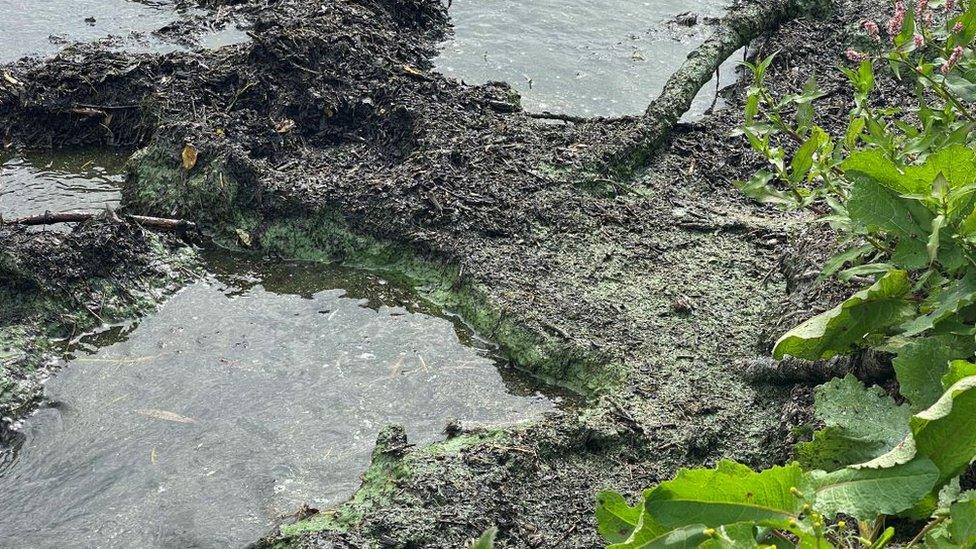River Blackwater blockage was 'half size of football pitch'
- Published
Government bodies said they did not have responsibility to clear the river so local people took the matter into their own hands.
Volunteers in County Tyrone have raised concerns after spending weeks removing a river blockage they said was "half the size of a football pitch".
At the beginning of March, trees fell into the Tyrone side of the River Blackwater and waste and sludge got caught in the debris.
Local people feared that search and rescue boats could be prevented from accessing Lough Neagh.
Government bodies said they did not have responsibility to clear the river.
New figures show there have been more than 7,000 waste dumping and water pollution incidents in Northern Ireland since 2019.
The River Blackwater river runs along the Armagh-Tyrone border to Lough Neagh and is one of Northern Ireland's most polluted rivers.
Brian MacAuley, chair of the Inland Waterways Association's Blackwater Branch, helped organise a clear-up on the river.
He believes it shouldn't be left to the local community to solve the problem.
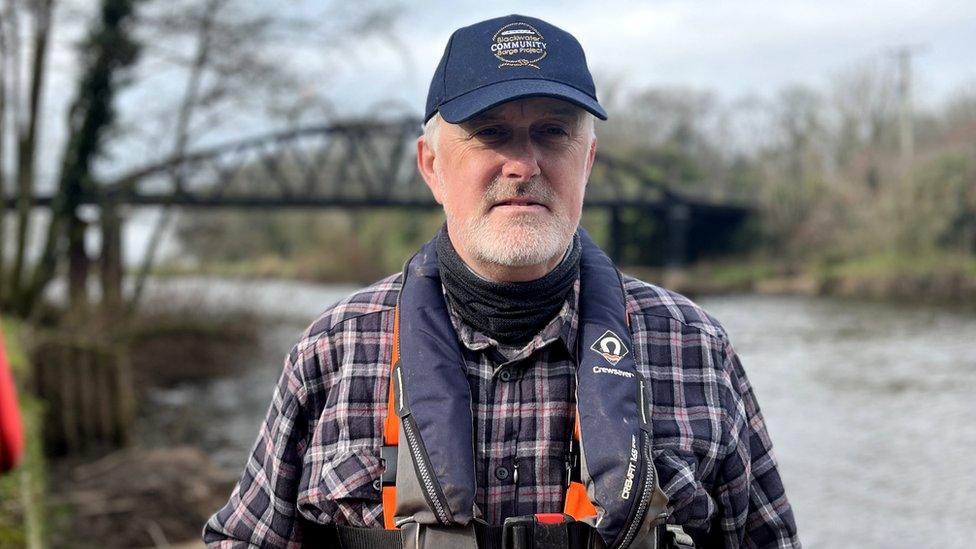
Brian MacAuley is chair of the Inland Waterways Association's Blackwater Branch
He added: "The blockage was about half the size of a football pitch, it was huge, but we've found that most government agencies aren't interested. Every department says it's somebody else's problem and we've been caught in the middle.
"In their frustration the community have rallied together to fix this problem themselves; every single person who has helped clear this blockage is a volunteer."
Criticism
The Blackwater is one of six major rivers that feed into Lough Neagh, where, last year, blue-green algal blooms could be seen from space.
At a meeting of Mid Ulster District Council on 22 March 2024, government departments were criticised over the blockage at the River Blackwater.
Chairman Dominic Molloy claimed that "lives were being put at risk" as a result of a lack of action, and that ordinary citizens were left with no choice but to step in to clear blockages themselves.
The Department for Infrastructure (DfI) told BBC News NI that it only undertakes works on rivers to "maintain the watercourse in a free-flowing condition to facilitate drainage outlets and reduce the risk to life and property from flooding".
A spokesperson added it did not have responsibility to clear blockages or maintain any river channel for "navigation purposes".
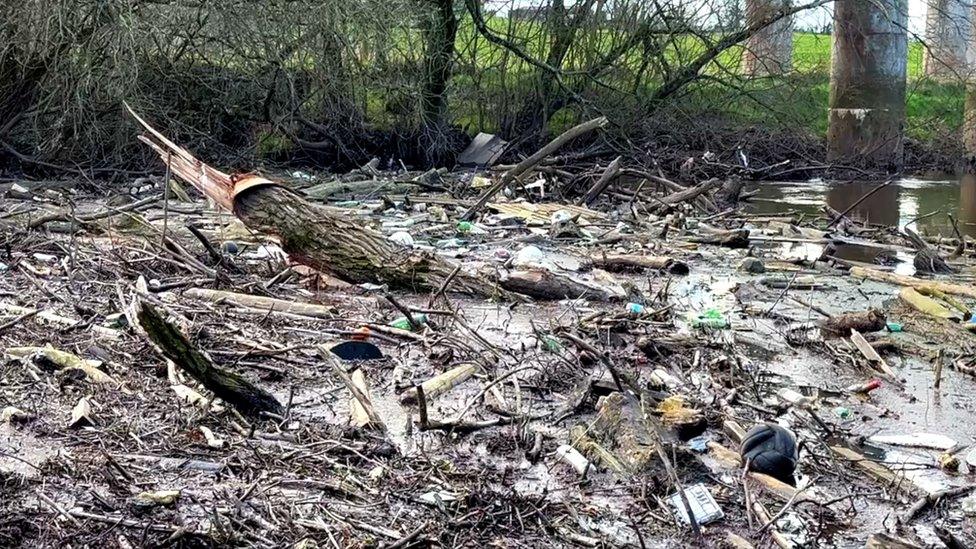
At the beginning of March tree debris fell into the Tyrone side of the River Blackwater
The Northern Ireland Environment Agency (NIEA) also said it did not have responsibility to clear blockages or to maintain any river channel, such as the Blackwater, for navigation purposes.
A spokesperson added that it supports community groups to deliver improvements to waterways through its Environment Fund.
However, Brian MacAuley said he was in "no doubt this could happen again" and called for urgent, preventative measures.
"So whether that's the agriculture or the infrastructure ministers, or both, we need a joined-up strategy to create a solution, particularly on the river banks."
Agriculture Minister Andrew Muir has previously said that investment and proper enforcement was the best way to tackle the problem of water pollution.
On Thursday, clean water campaigner Feargal Sharkey said the situation was a "shambles".
Speaking on the BBC's Good Morning Ulster programme, the former Undertones frontman called for a new independent arms-length body to properly manage water pollution in Northern Ireland.
"The simple truth of the matter is, politics stepped aside and allowed the water company and indeed agriculture to destroy the environment and the rivers and the water bodies."
"Deara has proved it's simply not up to the task. It needs to set up an independent regulator charged with, properly funded and resourced, to go out there and ensure the law is complied with."
Pollution
Issues on the River Blackwater come as BBC News NI has obtained new figures showing the extent of dumping and water pollution incidents in Northern Ireland between 2019 and 2023.
The figures were released through a Freedom of Information request to the Department of Agriculture, Environment and Rural Affairs (DAERA).
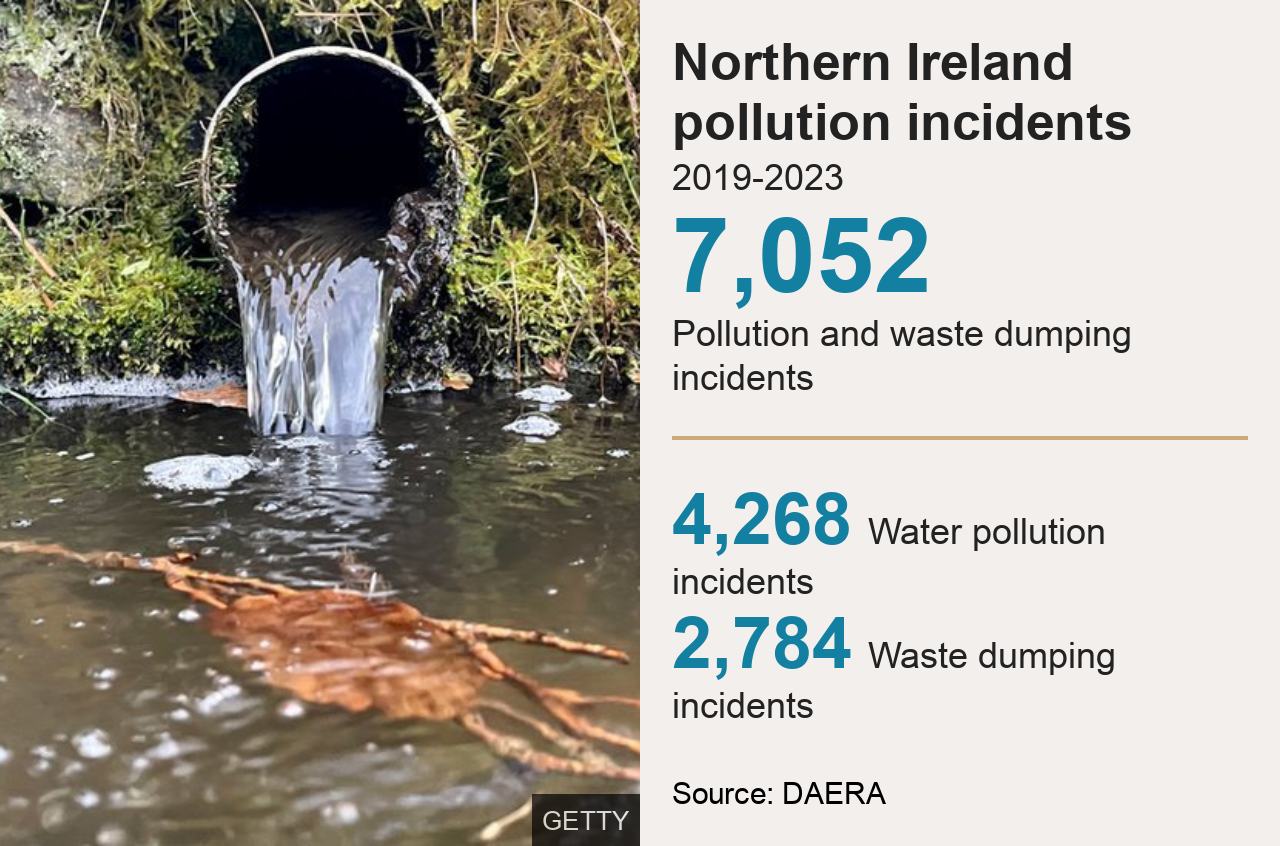
The farming industry was the source of the most pollution incidents.
The Ulster Farmers' Union said that dedicating resources to the prevention of pollution was the key.
A UFU spokesperson added: "We recognise that certain farming practices can impact water quality but there are a significant range of schemes and regulations in place in Northern Ireland to address this."
NI Water (NIW) was also responsible for almost 500 pollution incidents.
A spokesperson said the majority were "low severity" due to sewer blockages from inappropriate items being flushed down the toilet.
Earlier this week, a report by the Northern Ireland Audit Office found a quarter of water pollution incidents in 2022 were linked to the agricultural sector.
The majority of incidents were in the River Blackwater area with farm effluent, silage and cattle waste most frequently detected.
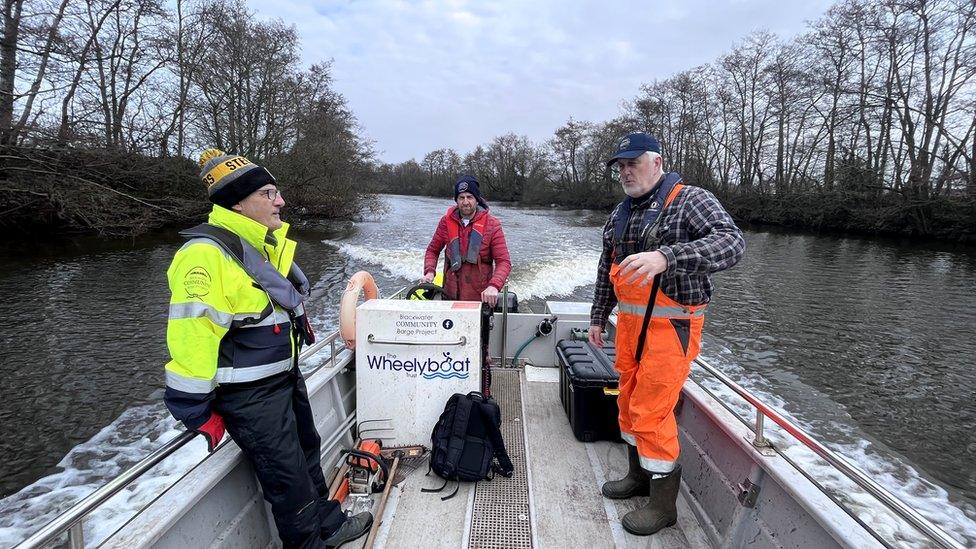
Brian MacAuley believes it shouldn't be left to the local community to solve the problem
The NIEA said it takes it responsibilities on waste dumping and water pollution incidents seriously.
A spokesperson added: "NIEA will investigate and take appropriate action depending on the significance of the offence. This may include advice and guidance, written warnings, fixed penalty notices, clearance notices and or criminal prosecutions.
- Published2 January 2024
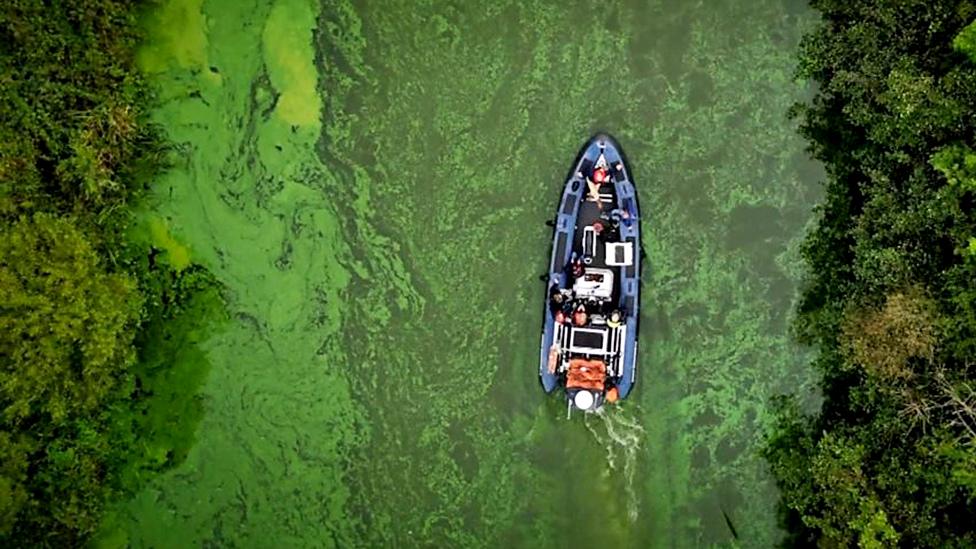
- Published25 March 2024
